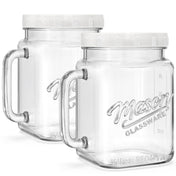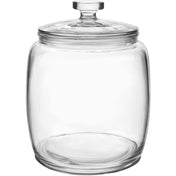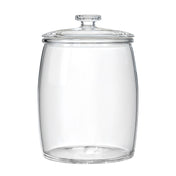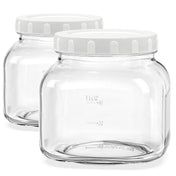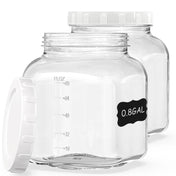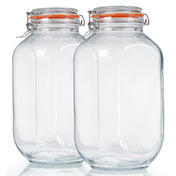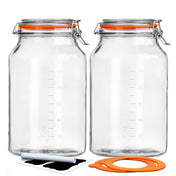Both Glass and Plastic Bottles are widely used in our daily life. But do you really know the pros and cons of the both containers? Now we focus on the production and usage feature of 2 containers made from diverse materials and talk about the pros and cons of them.

Pros of Glass Containers and Plastic Containers
Glass container
- Aesthetics: Glass offers a premium experience in appearance, feel, and weight, which makes customers put any product contained inside in their preference list. The aesthetic benefits of glass bottles are primarily used by businesses to promote any product that needs to have a sophisticated image for marketing. Some of the products that fall into this category are luxury fruit juices and craft cold brew.
- Recyclability: Glass bottles are 100% recyclable. No matter the product put in them, they can be reused countless times without the glass degrading in quality and purity. Also, as an advancement to make other quality standards and color variations, all that’s to be added are some other raw materials.

- Chemical-resistant: Glass has intrinsic properties that offer inertness and impermeability needed for sensitive products. This extends to liquids that are to be stored for a long period of time, such as spirits and other alcoholic beverages. Also, they are strong enough to withstand a wide range of temperatures; they won’t warp under pasteurization.
- Non-toxic: Glass is not hazardous; it contains no substances that could be dangerous and generally has no bad effects on human health. Compared to plastic, it is less porous. Also, it is highly resistant to leaching into your products even when kept for a long period of time. As the public keeps on learning about bisphenol A (BPA) and other potentially toxic compounds in plastics, manufacturers of beverages and other natural products should start switching to glass.
Plastic container
- Durability & ease of use: A salient benefit of plastic bottles is durability and ease of use. They are very strong and no matter how many times they fall, they won’t break. Also, they can be fabricated to have necks where the finger can be inserted for better grip.
- Production cost: When compared to glass, the melting point of plastic is much lower. Hence, less energy is used in production. In addition to this, the plastic manufacturing industry benefits from new technology developments as more advanced techniques and machinery are used in plastic molding, thereby reducing production costs.
- Transportation cost: Generally, plastic is lightweight and durable, making it much more suitable for shipping than glass. During transportation, 100% focus is not needed on plastic bottles as they don’t break easily. Unlike glass bottles, they can break from colliding with each other.

Cons of Glass Containers and Plastic Containers
Glass container
- Transportation cost: The cost of shipping glass bottles is more than plastic bottles. This is because glass has more weight and is more fragile, so caution must be taken to prevent cracks. While a glass bottle of 2 fl. oz weighs about 0.177 lbs, its plastic bottle counterpart may weigh only 0.023 lbs. While the difference may seem little with a single bottle, consider shipping in bulk.
- Breakage: A common drawback attributed to glass products, including glass bottles is breakage. They must be handled with care at all times. This means that a reasonable amount of caution must be taken when using glass bottles so that they don’t break.

Plastic container
- Aesthetics: As much as aesthetics is concerned in plastic bottles vs. glass bottles, the former is second in line. Even though plastic bottles can be fabricated to have beautiful geometries and feel, more can be done to glass bottles. Glass bottles are more suitable for high-end positioning brands.
- Recyclability: The resulting product after recycling is generally below par. While glass bottles are 100% recyclable, plastic bottles, when recycled, don’t produce the same quality and purity as the original product.
- Less resistance to chemicals: Plastics are less resistant to chemicals. They can’t withstand harsh conditions and chemicals. Also, some of them are not resistant to temperature, including UV rays.
- Toxicity: While some plastics don’t contain BPA, they all have a bad reputation for their toxicity and tendency to leech into products. When not correctly used, they can possibly leach harmful chemicals into your products. Glass bottles are highly preferred in this regard.





